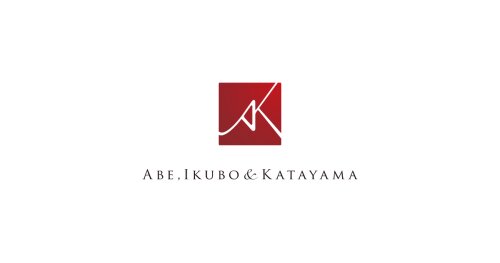Best Franchising Lawyers in Tokyo
Share your needs with us, get contacted by law firms.
Free. Takes 2 min.
List of the best lawyers in Tokyo, Japan
About Franchising Law in Tokyo, Japan
Franchising in Tokyo operates under Japan's comprehensive legal system, which is influenced by European civil law traditions. While there's no explicit "Franchise Law" in Japan, franchise relationships are governed by several laws, including the Civil Code, the Commercial Code, and specific legislation such as the Anti-Monopoly Act. Contracts are critical in franchising, dictating the terms that bind the franchisor and the franchisee.
Why You May Need a Lawyer
Legal advice can be crucial when entering into a franchise agreement in Tokyo. Not only is the language barrier potentially problematic - most contracts will be drafted in Japanese - but understanding the implications of existing laws and any associated risks is also important. A lawyer can assist in various situations, such as reviewing or drafting franchise agreements, helping with franchise disputes, ensuring compliance with local laws, and providing representation in case of litigation.
Local Laws Overview
Key laws that govern franchising in Tokyo include:
- The Civil Code, which provides general rules on contracts.
- The Commercial Code, which details commercial transactions, including sales and transfer of business operations.
- The Anti-Monopoly Act, ensuring fair competition and prohibiting unreasonable restraint of trade and unfair trade practices.
Frequently Asked Questions
What are the basic requirements to start a franchise in Tokyo?
Basic requirements include a solid business model, compliance with local laws, a comprehensive franchise agreement, and a trademark registration to protect your brand.
What should I look for in a franchise contract?
You should pay attention to terms regarding the scope of the agreement, fees, the territorial rights, duration, renewal and termination conditions, obligations of the parties, and any performance targets or restrictions.
Are there franchising associations in Japan that I can consult?
Yes, the Japan Franchise Association is a key body representing the interests of franchisors and franchisees in Japan.
How are intellectual property rights handled in a franchise agreement?
Franchise agreements typically include provisions that grant the franchisee the right to use trademarks, service marks, and other intellectual property owned by the franchisor for the duration of the agreement.
Is it possible to negotiate the terms of a franchise contract in Tokyo?
Yes, franchise contracts are often negotiable to some extent. However, larger franchisors may offer less flexibility on their standard terms.
What are the most common disputes that arise in franchising?
Disputes often arise regarding the performance of the franchisee, payment of fees, compliance with the franchise system, and terms of renewal or termination.
Are there any specific industries where franchising is particularly popular in Tokyo?
Franchising is popular in various industries, including food and beverage services, retail, education, and convenience stores.
What happens if there is a breach of the franchise agreement?
If there's a breach, dispute resolution clauses come into effect, which may include negotiation, mediation, arbitration, or litigation.
Can a franchisee operate more than one location in Tokyo?
Yes, depending on the terms of the franchise agreement, a franchisee may be allowed to operate multiple locations.
What are the termination rights of both the franchisee and franchisor?
Termination rights and procedures typically depend on the terms stipulated in the franchise agreement and must comply with local Japanese law.
Additional Resources
For those seeking more information on franchising in Tokyo, the Japan Franchise Association and Tokyo Chamber of Commerce and Industry could be valuable resources. Additionally, the Japan External Trade Organization (JETRO) provides guidance for foreign businesses looking to establish a presence in Japan.
Next Steps
If you're seeking legal assistance in franchising, the first step is to find a reputable lawyer or law firm specializing in commercial and contract law, particularly with experience in franchising. Setting up an initial consultation will help clarify your legal needs and give you a proper understanding of the necessary legal framework and processes. Additionally, it is advised to have any legal documents reviewed or drafted by a bilingual lawyer to overcome any language barriers.
Lawzana helps you find the best lawyers and law firms in Tokyo through a curated and pre-screened list of qualified legal professionals. Our platform offers rankings and detailed profiles of attorneys and law firms, allowing you to compare based on practice areas, including Franchising, experience, and client feedback.
Each profile includes a description of the firm's areas of practice, client reviews, team members and partners, year of establishment, spoken languages, office locations, contact information, social media presence, and any published articles or resources. Most firms on our platform speak English and are experienced in both local and international legal matters.
Get a quote from top-rated law firms in Tokyo, Japan — quickly, securely, and without unnecessary hassle.
Disclaimer:
The information provided on this page is for general informational purposes only and does not constitute legal advice. While we strive to ensure the accuracy and relevance of the content, legal information may change over time, and interpretations of the law can vary. You should always consult with a qualified legal professional for advice specific to your situation.
We disclaim all liability for actions taken or not taken based on the content of this page. If you believe any information is incorrect or outdated, please contact us, and we will review and update it where appropriate.













